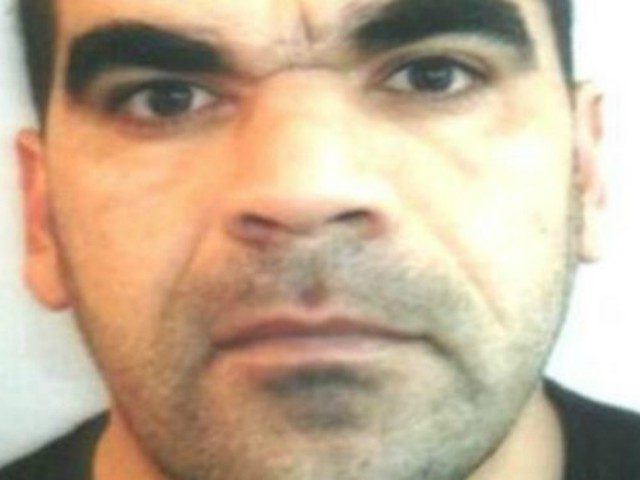An Iranian refugee and Islamic State “fanatic” in Britain was jailed for inciting two Islamists, who arrived in Europe during the migrant crisis, to commit a mass act of terror by driving into a crowd in Germany and hacking to death any survivors with meat cleavers and swords. He told the migrants to commit the act of terror to show the victims that “Islam is here”.
Fatah Mohammed Abdullah, 35, a resident of Newcastle, had pleaded guilty in Liverpool Crown Court in March 2020 to assisting Ahmed Hussein (also known as Shahin Fatah) and his cousin Omar Babek (also known as Hersh Fatah) to commit acts of terrorism in their resident country of Germany. German courts had prosecuted Hussein and Babek in 2019, both sentenced to four years and eight months’ imprisonment.
Abdullah was sentenced to “life” imprisonment on Friday, with a minimum period of only nine years before he can be considered for release on parole.
The Iranian had come to the United Kingdom in 2005 seeking asylum and his initial asylum application was rejected. He was sectioned in 2007 after being diagnosed as mentally ill, and a subsequent asylum application was approved in 2010, according to The Telegraph.
Authorities had arrested Abdullah after a joint operation by Counter Terrorism Policing North East and Northumbria Police, who raided his property on December 11th, 2018, following an intelligence-led investigation.
Investigators found materials used to make improvised explosive devices. In addition, they found fuses, a balaclava, and a bushcraft knife. He had also recorded himself explaining how to test a remote control detonator and shared the video with his two conspirators in Germany.
Police also found a “significant amount of material on Abdullah’s digital devices showing his affiliation and support for [the Islamic State]” — with the Crown Prosecution Service referring to him as an Islamic State “fanatic” — “and extreme violence”.
His mobile phone contained Islamic State propaganda, including footage of children beheading ISIS prisoners, animations of explosions at well-known British landmarks, and the images of the aftermath of the Manchester Arena terror attack, which was committed by Salman Abedi, an Islamist son of Libyan refugees.
Counter Terrorism Policing said that the Iranian refugee had encouraged Hussein and Babek to commit a mass terror attack in Germany. He had instructed them to cause an explosion, drive a vehicle into a crowd, and kill as many as survivors as possible with meat cleavers, knives, and swords.
In one message sent on the Telegram app, the Iranian refugee told the two asylum seekers: “After you have set off the explosions, you target a crowd or group of people with your car, you drive through them.
“Find a meat cleaver which is used by butchers, once you have run them over with the car, get out of the car and start attacking them with it.
“If you couldn’t attack them with a car after the explosion, attack them with a knife, sword, or meat cleaver.
“The aim is that you kill them and make them feel terrified and show them that [Islamic State] is here and Islam is here. The most important thing is that you carry out the jihad.”
While the German residents never completed the terror attack, they had used Abdullah’s instructions to conduct two explosives tests. Abdullah had never met the German Islamist terror cell, and it is unclear how the trio became connected. The BBC reports that Hussein and Babek had travelled from Iraq and sought asylum in Germany in 2015, the year the migrant crisis began in earnest.
The Hamburg court said the two asylum seekers “were determined to implement their proposed plan in a place in Germany that was highly frequented by people”.
There was no doubt in the minds of counter-terrorism investigators in the United Kingdom that Abdullah fully intended for as many people as possible to be hurt and killed.
The Head of Counter Terrorism Policing North East, Detective Chief Superintendent Martin Snowden, said: “While our investigation did not establish the target of a potential attack, Abdullah posed a very real risk. We cannot underestimate the significant harm and loss of life that could have occurred as a result of his actions and behaviour. We’re grateful we were able to disrupt these plans before there was an opportunity to see them through.”

COMMENTS
Please let us know if you're having issues with commenting.